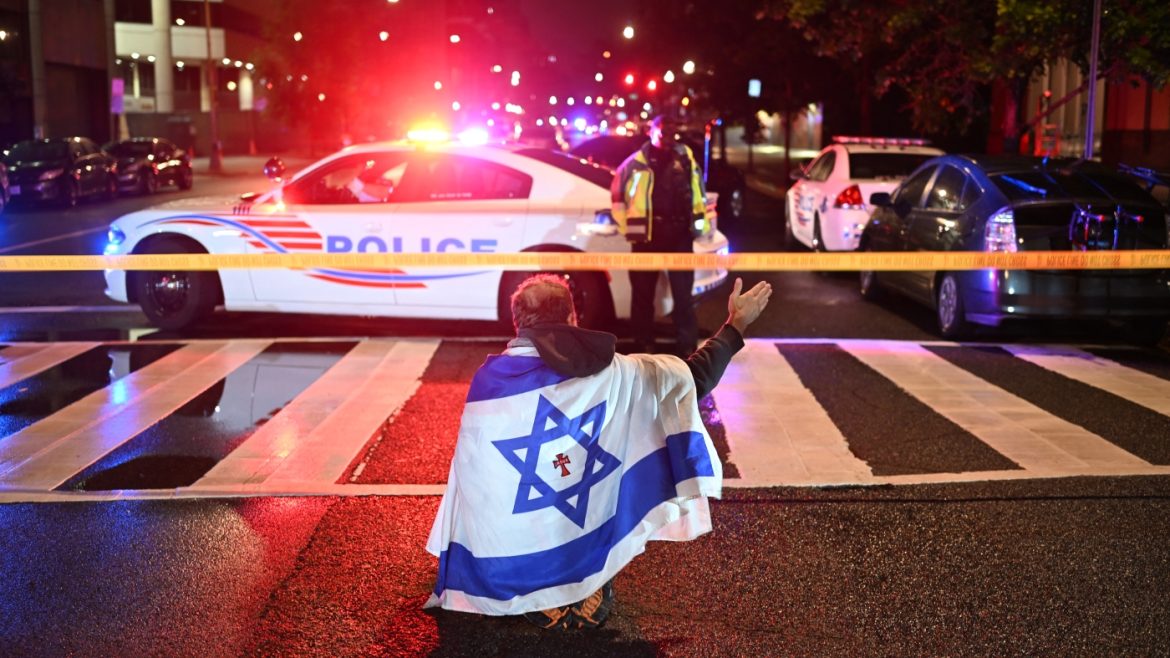Two Israeli Embassy Aides Killed in Washington, D.C.: An Incident with Broader Resonance
Two staff members of the Israeli Embassy in Washington, D.C., Yaron Lischinsky and Sarah Lynn Milgrim, were fatally shot outside the Capital Jewish Museum on Wednesday evening as they left an event hosted by the American Jewish Committee. Both victims were young, engaged to be married, and dedicated to their roles within the embassy—Milgrim working in public diplomacy and Lischinsky as a Middle East and North Africa researcher.
Details of the Shooting and Suspect
The suspect approached a group of four individuals, including Lischinsky and Milgrim, and opened fire, killing the two embassy aides. Upon arrest, the assailant reportedly chanted “Free, free Palestine,” indicating a politically charged motive, possibly linked to ongoing Israeli-Palestinian tensions. Police swiftly detained the suspect, and investigations continue as authorities treat the case as a hate crime with anti-Semitic undertones.
National and International Reactions
The shooting has drawn immediate condemnation from leaders in both Israel and the United States. Israeli President described the killings as a “despicable act of hatred,” emphasizing the tragic loss and the dangers of rising anti-Semitism. U.S. President Donald Trump likewise condemned the attack, underscoring solidarity with the Israeli people and denouncing violence targeting diplomats and Jews.
This incident is seen against the backdrop of escalating violence and political instability in the Middle East, particularly concerning Israel’s conflict with Hamas and conditions in Gaza. The deaths of embassy staffers in the U.S. capital have resonated deeply, highlighting that the reverberations of Middle Eastern conflicts can extend globally, impacting diaspora communities and diplomatic missions.
Broader Context: U.S. Politics and the “Big, Beautiful Bill”
While the nation grapples with the tragedy, legislative developments are concurrently unfolding on Capitol Hill. The U.S. House of Representatives has passed a comprehensive tax and budget bill colloquially dubbed President Trump’s “One Big Beautiful Bill Act.” Moving through the House Budget Committee late into the night, the bill proposes extensive tax changes, including measures that would impact remittances sent abroad, notably affecting thousands of Indian residents and Non-Resident Indians (NRIs) in the United States.
The bill, spanning over 1,000 pages, has been both praised and critiqued for its scale and scope. Supporters point to the significant tax cuts and budgetary reforms it promises to deliver, while detractors express concerns over the potential political fallout and economic consequences, especially regarding the increased costs of sending money to foreign family members.
Intersecting Narratives: Security, Politics, and Humanitarian Concerns
The juxtaposition of these two prominent stories—the fatal embassy shooting and the passage of a large-scale tax bill—reflects multifaceted challenges facing the U.S. on both its domestic and international fronts. The embassy aides’ deaths bring into sharp focus issues of security for diplomatic staff, the persistence of hate crimes, and the need for vigilance against extremism within U.S. borders.
Simultaneously, the passage of Trump’s “big, beautiful bill” showcases the ongoing legislative efforts to reshape America’s fiscal landscape, with implications for foreign communities and economic flows tied to global diasporas. These developments unfold amid heightened political tensions and humanitarian concerns related to the Israeli-Palestinian conflict, including debates around aid and blockades affecting Gaza.
Conclusion: Reflection on the Weight of Current Events
The deaths of Yaron Lischinsky and Sarah Lynn Milgrim serve as a somber reminder of the vulnerabilities faced by diplomats and the pernicious effects of political hatred. Their loss is mourned internationally, underscoring the interconnectedness of global events and highlighting the critical importance of combating violence and prejudice.
At the same time, the U.S. continues to navigate complex policy decisions that affect both its citizens and the broader international community. The tax bill’s passage reflects a push for significant domestic change but is entwined with issues of equity and global ties, particularly for immigrant communities.
Together, these events paint a portrait of a nation and a world grappling with immediate tragedies and long-term policy shifts, each influencing the other in the delicate balance of domestic security, international diplomacy, and governance.


